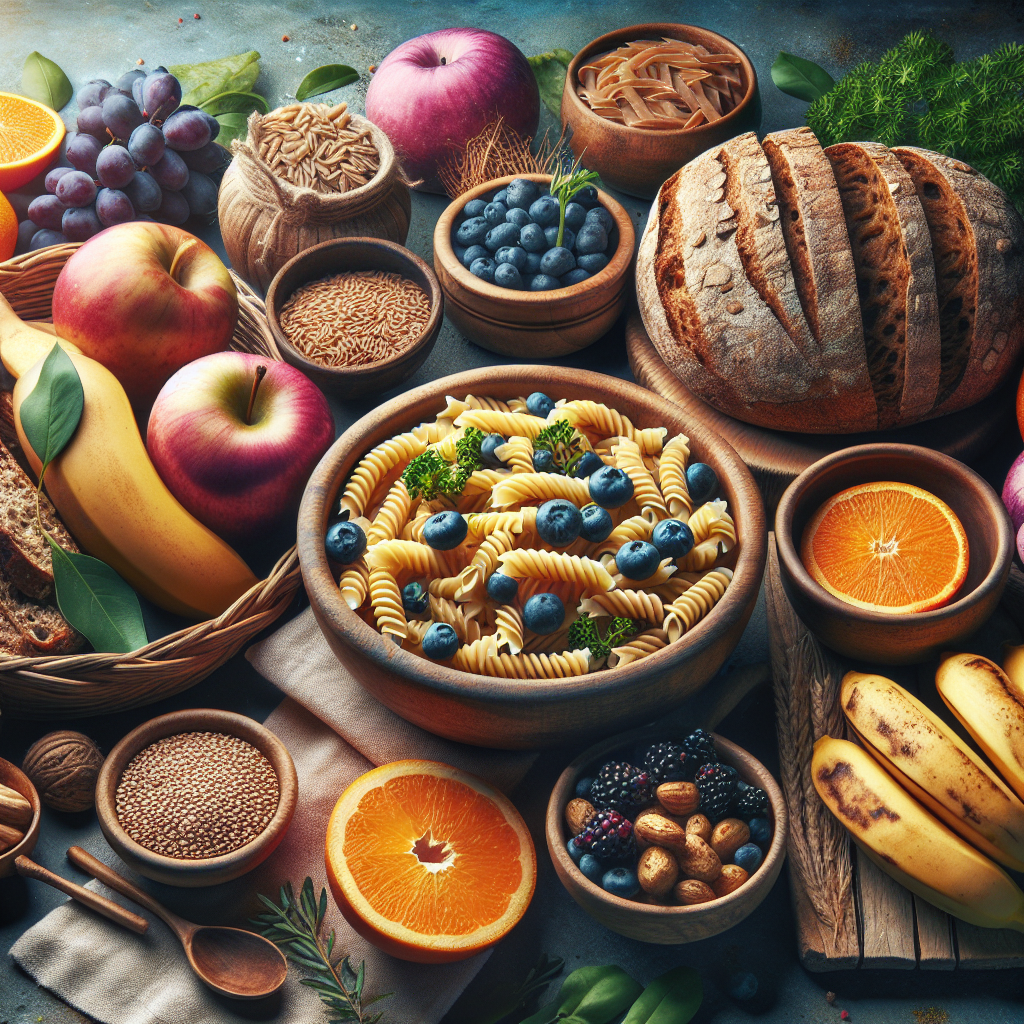
Introduction: Fuel Your Recovery with Top Carbohydrate Sources
Ever felt like you’ve given your all during a workout only to be left completely drained and sore the next day? Welcome to the club! Carbs are the unsung heroes of recovery, fueling your muscles and replenishing glycogen stores. Today, we’ll talk about the best carbohydrate sources that not only taste great but also work wonders for your post-exercise recovery. Whether you’re a gym-goer, a runner, or simply want to bounce back faster, this article is for you!
Why Carbohydrates Are Crucial for Recovery
Carbohydrates often get a bad rap, but for athletes and fitness enthusiasts, they are nothing short of essential. Post-exercise, your body’s glycogen stores get depleted, making you feel fatigued. Carbohydrates help to quickly replenish these stores, ensuring you have the energy to power through your next session. Additionally, they aid in muscle repair and reduce muscle soreness.
Top Carbohydrate Sources for Men’s Health
Oats
Oats are a fantastic source of complex carbs, providing sustained energy release. A study published in the Journal of Strength and Conditioning Research found that consuming complex carbs like oats post-exercise significantly improved recovery and performance in subsequent workouts.
- Benefits: High in fiber, vitamins, and minerals; keeps you full longer.
- Usage Tip: Pair with protein-rich Greek yogurt and a sprinkle of nuts for an energy-packed recovery meal.
Sweet Potatoes
Sweet potatoes are rich in vitamins A and C and have a moderate glycemic index, making them excellent for gradual glycogen replenishment.
- Benefits: Rich in antioxidants which can help reduce inflammation.
- Usage Tip: Roast them with a bit of olive oil and a pinch of cinnamon for both a tasty and nutritious recovery snack.
Top Carbohydrate Sources for Women’s Health
Quinoa
Quinoa is often hailed as a superfood, and rightly so. This grain is not only carb-rich but also packed with protein, making it a dual-action recovery powerhouse.
- Benefits: Contains all nine essential amino acids, aiding in muscle repair and growth.
- Usage Tip: Mix cooked quinoa into a salad with mixed greens, chopped veggies, and a light vinaigrette for a balanced recovery meal.
Fruit Smoothies
Fruit smoothies provide quick-digesting carbs, ideal for immediate glycogen replenishment. Adding some protein powder can make it even more effective for muscle recovery.
- Benefits: Easy to make and customize based on personal preferences and nutritional needs.
- Usage Tip: Blend together frozen berries, banana, Greek yogurt, and a scoop of protein powder for a delicious recovery shake.
Top Carbohydrate Sources for Children’s Health
Whole Grain Bread
Whole grain bread is an excellent and convenient source of carbohydrates for active kids. It provides fiber and essential nutrients.
- Benefits: Keeps kids’ energy levels stable throughout the day.
- Usage Tip: Spread with natural peanut butter and add a drizzle of honey for a quick post-activity snack.
Bananas
Bananas are not only appealing to kids but also packed with fast-acting carbs, great for quick energy replenishment.
- Benefits: Rich in potassium, helping to prevent muscle cramps.
- Usage Tip: Encourage kids to pair a banana with a glass of milk or yogurt for a well-rounded snack.
Advantages and Side Effects of Carbohydrate-Rich Recovery Foods
Carbohydrates provide numerous benefits for recovery, such as quick replenishment of glycogen stores, reduced muscle soreness, and improved performance in subsequent sessions. However, it's essential to choose the right types of carbs and consume them in moderation. Overconsumption, especially of simple sugars, can lead to weight gain and blood sugar spikes.
To minimize potential side effects, opt for complex carbs and pair them with proteins and fats to stabilize blood sugar levels.
How Carbs Stack Up Against Other Supplements
While other supplements like protein powders, BCAAs, and creatine also play crucial roles in recovery, carbohydrates offer unmatched glycogen replenishment. They are particularly beneficial when consumed post-exercise, whereas protein and BCAAs are more effective for muscle repair and growth. Carbohydrates can be easily combined with these supplements to create a comprehensive recovery strategy.
Real-Life Experiences and Reviews
"I started incorporating sweet potatoes into my post-workout meals and noticed a significant decrease in muscle soreness," says Sarah, a fitness enthusiast. "They’re easy to prepare and delicious, making recovery more enjoyable."
Tom, a marathon runner, shares, "I swear by fruit smoothies after long runs. Not only do they taste great, but they also provide the quick carbs I need to feel rejuvenated."
Frequently Asked Questions (FAQs)
Q1: Is it okay to consume simple carbs post-workout?
A1: Yes, simple carbs can be beneficial post-workout as they quickly replenish glycogen stores. However, for sustained energy, it’s better to combine them with complex carbs and proteins.
Q2: How soon should I consume carbs after a workout?
A2: Aim to consume carbs within 30 to 60 minutes post-exercise to maximize glycogen replenishment and recovery.
Q3: Can I rely solely on carbs for recovery?
A3: While carbs are crucial for glycogen replenishment, a balanced intake of proteins and fats is essential for optimal recovery and muscle repair.
Conclusion: Embrace Carbs for Superior Recovery
Carbs are your best friends when it comes to effective recovery. Whether it’s the complex carbs from oats and quinoa or the quick fix from fruit smoothies and bananas, each offers unique benefits to restore your energy and muscles. Remember, balance is key! Pair your carbs with proteins and fats, and you’ll be on your way to a quicker, more efficient recovery path.
For more articles on supplements and healthy living, keep exploring HealthyHerbology.com. Your muscles will thank you!



